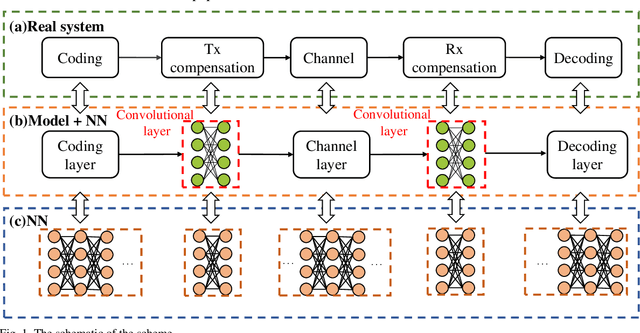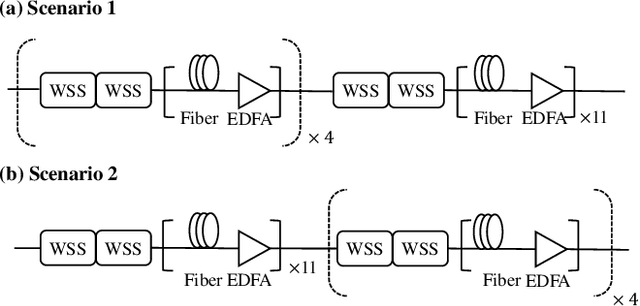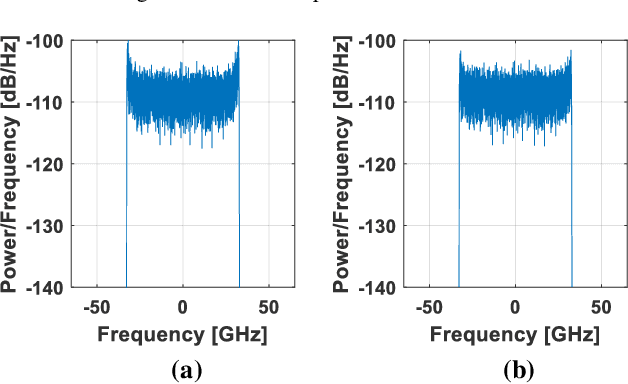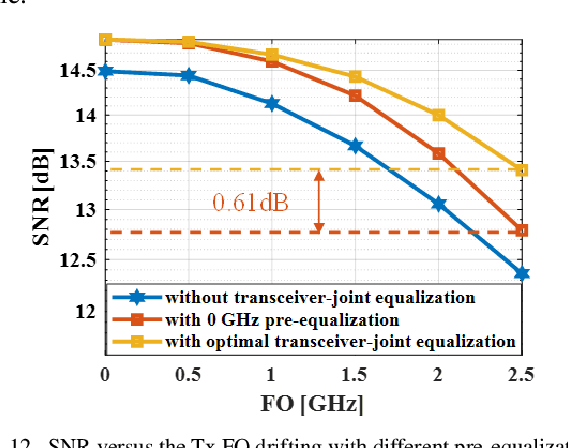An Interpretable Mapping from a Communication System to a Neural Network for Optimal Transceiver-Joint Equalization
Paper and Code
Mar 23, 2021



In this paper, we propose a scheme that utilizes the optimization ability of artificial intelligence (AI) for optimal transceiver-joint equalization in compensating for the optical filtering impairments caused by wavelength selective switches (WSS). In contrast to adding or replacing a certain module of existing digital signal processing (DSP), we exploit the similarity between a communication system and a neural network (NN). By mapping a communication system to an NN, in which the equalization modules correspond to the convolutional layers and other modules can been regarded as static layers, the optimal transceiver-joint equalization coefficients can be obtained. In particular, the DSP structure of the communication system is not changed. Extensive numerical simulations are performed to validate the performance of the proposed method. For a 65 GBaud 16QAM signal, it can achieve a 0.76 dB gain when the number of WSSs is 16 with a -6 dB bandwidth of 73 GHz.
 Add to Chrome
Add to Chrome Add to Firefox
Add to Firefox Add to Edge
Add to Edge